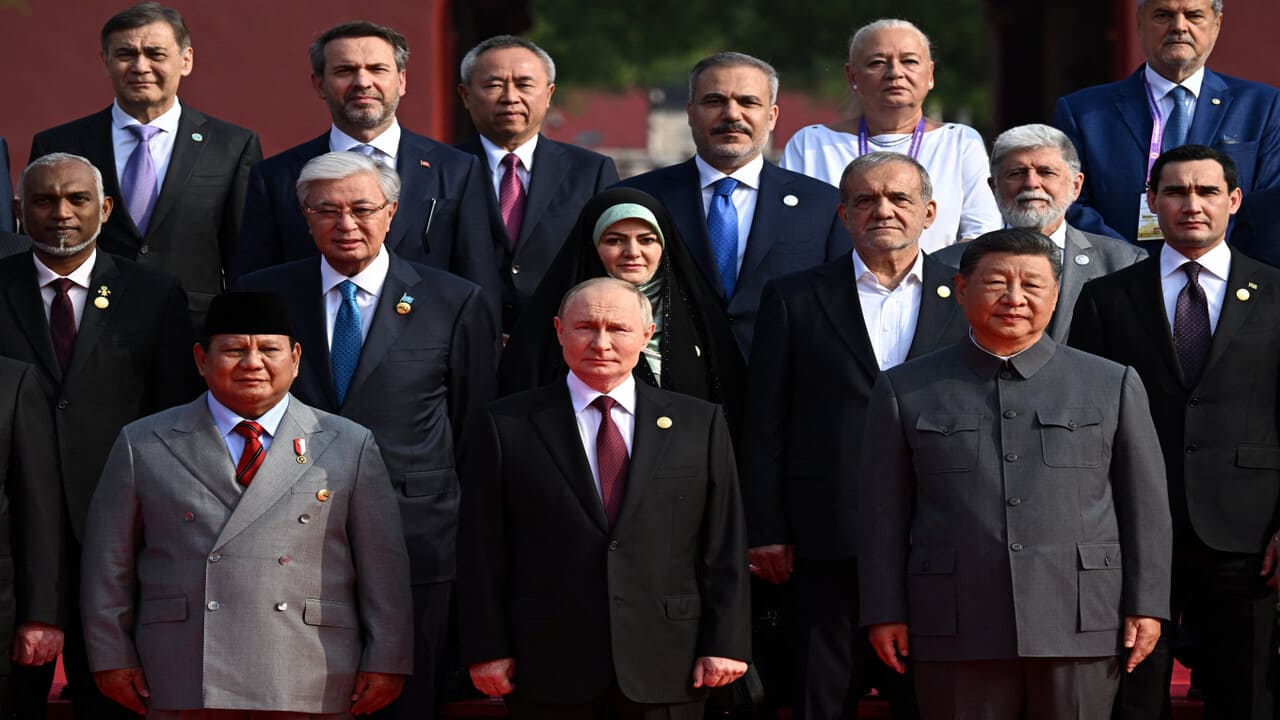
IndependentReport – On September 3, 2025, Beijing hosted a massive military parade marking the 80th anniversary of the end of World War II. The event was carefully choreographed, showcasing advanced military equipment such as hypersonic missiles, drones, and upgraded tanks. President Xi Jinping presided over the ceremony of China Military Parade, which brought together world figures including Russian President Vladimir Putin and North Korean leader Kim Jong Un.
In his keynote address, Xi spoke about the crossroads facing humanity choosing “peace or war” and emphasized China’s commitment to defending sovereignty and strengthening its role in global affairs. For China, the parade was more than a historical commemoration; it was also a stage to project confidence, unity, and military readiness in an increasingly tense international environment.
Former US President Donald Trump, while acknowledging that the parade was “very beautiful” and “impressive,” expressed disappointment that Xi’s speech omitted any mention of America’s contribution during World War II. According to Trump, the absence of recognition ignored the fact that the United States had played a crucial role in helping China resist and eventually defeat Japan.
Speaking to CBS News and later on social media, Trump remarked, “President Xi is a friend of mine, but I thought that the United States should have been mentioned… because we helped China very much.” His words reflected not only frustration at the lack of acknowledgment but also a subtle attempt to underline America’s historic role in shaping the post-war order.
Also Read : US Military Strike on Venezuelan Vessel Sparks Global Debate
Trump’s comments did not stop at disappointment. He went further by suggesting half seriously that Xi, Putin, and Kim might have been “hoping he was watching” the event, implying there could be hidden political messaging behind the spectacle. While many interpreted his remarks as ironic or satirical, the Kremlin responded swiftly, dismissing any suggestion of conspiracy and characterizing Trump’s words as playful exaggeration.
This episode highlights Trump’s style of blending humor with pointed critique. By publicly questioning the absence of US recognition, he managed to stir diplomatic chatter, showing once again how symbolic gestures in international events can trigger political debate far beyond the immediate context.
The absence of US recognition during such a significant historical commemoration carries deeper meaning. Several reasons explain why Trump insisted on the importance of mentioning America:
By ignoring Washington in his speech, Xi underscored China’s ambition to shape its own narrative of World War II one that emphasizes Chinese sacrifice and resilience while downplaying external assistance.
While the parade itself focused on history, the geopolitical implications resonate with ongoing conflicts, including the Russia-Ukraine war. Three clear signals emerge from Beijing’s display:
For Trump, who has been advocating for a peace deal between Russia and Ukraine, the parade offered an opportunity to highlight the broader global contest where symbolic acts can shape political dynamics.
Read More : Over 320 Oregon Species Now at Risk, State Wildlife Report
The international community reacted in varied ways to the China Military Parade. Many Western leaders chose not to attend, signaling disapproval of China’s alignment with Moscow and Pyongyang. This absence contrasted sharply with the presence of Russia and North Korea, highlighting the divide between Western democracies and authoritarian regimes.
China, meanwhile, portrayed the parade as a message of strength and resilience. The government emphasized that the commemoration was not just about remembering the past but about ensuring peace in the future. Yet, the military show of force inevitably raised concerns among neighboring nations wary of Beijing’s growing assertiveness.
Trump’s ironic comments further amplified global attention, sparking debates on social media and in political circles. By weaving in criticism, humor, and hints of suspicion, Trump turned what might have been a ceremonial moment into a focal point of diplomatic controversy.
The spectacle in Beijing serves as a reminder that historical commemorations are never only about the past they are also about shaping narratives for the present and future. Xi’s speech, the absence of US acknowledgment, and Trump’s sharp reaction all reflect the ongoing struggle for influence in a world fractured by war, rivalry, and competing visions of order.
As the Russia-Ukraine conflict continues and tensions in Asia rise, the symbolic weight of events like the Beijing parade will continue to resonate. Whether interpreted as celebration, provocation, or simply national pride, such spectacles carry consequences that extend far beyond the reviewing stand.